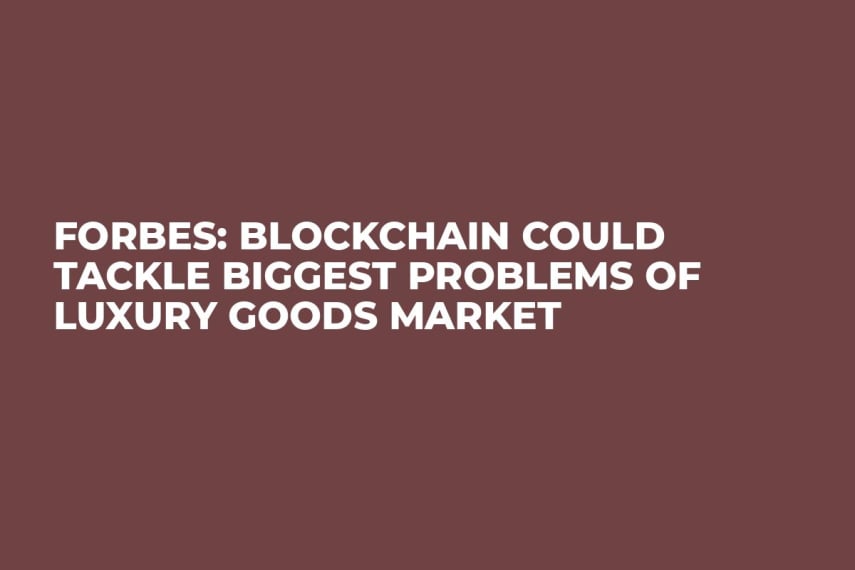A recent Forbes article states that Blockchain could be a boon for luxury items. It could prevent counterfeiting and make pricing more objective and transparent.
Recognizing the problems
We may own some luxurious things from top designers that are supposed to retain their value with time. However, Andrew Rossow claims that there is no way to determine with absolute confidence how much money a specific item is worth.
As of now, the whole luxury goods market is valued at $3 tln. With that being said, there is still a need for a reliable verifying system that would allow tackling the industry’s main issues such as counterfeiting and inaccurate appraisal. That’s where the nascent Blockchain technology can help.
Battling counterfeiting
Counterfeit goods represent a $460 bln business niche, so it doesn’t come as a surprise that fake products can be found everywhere, delivering a major blow to the world of luxury. Those who are experienced enough can recognize inauthentic products, but this is still a complicated process for non-sophisticated buyers.
Blockchain would allow establishing a direct link between merchants and clients, thus restoring the missing trust and loyalty. All the information about a certain item, which spans its entire life cycle, will be available on a digital ledger. As it is commonly known, the data recorded on Blockchain cannot be tampered with, so there won’t be any questions about the authenticity of the product.
Fair pricing
Rossow also believes that Blockchain could be a solution for implementing a standardized valuation system devoid of any objectivity. Transparent prices would make the luxury goods market more legitimate and would be undoubtedly beneficial for merchants and consumers. Sometimes it may take hours or even days before an agreement is reached between the two parties, but Blockchain would make the procedure of buying exclusive items much more efficient.



